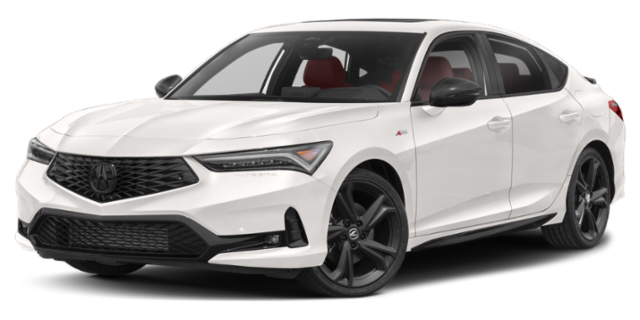**Based on current year EPA mileage ratings. Use for comparison purposes only. Your actual mileage will vary, depending on how you drive and maintain your vehicle, driving conditions, battery pack age/condition (hybrid models only) and other factors.
2024 Acura Integra vs. Competitors
2024 Acura Integra vs. Competitors
The return of the Integra to Acura’s model lineup brings back a beloved nameplate that last graced showrooms in 2006. This gateway to the Acura brand offers an affordable option for buyers looking for a more premium experience. Here, we’ll compare the 2024 Acura Integra to other entry-level luxury cars. We’ll see how the 2024 editions of the BMW 2 Series Gran Coupe, Lexus IS 300, and Mercedes-Benz CLA 250 Coupe stack up. Unless we say otherwise, all comparisons reflect the least-expensive trims for each model.
View Inventory
Price
The cost of a new vehicle influences most purchasing decisions, which makes the Acura’s starting price of $31,500 especially attractive. It significantly undercuts the base prices for the BMW 2 Series Gran Coupe ($38,400), Lexus IS 300 ($40,085), and Mercedes CLA 250 Coupe ($43,200). Another advantage of the Integra’s lower price is less interest paid over time, an essential consideration in times of higher borrowing costs.
Cost of Ownership
The Integra’s greater affordability also extends over the long term. Edmunds analyzed the ownership costs
of these four vehicles over five years. This forecast looked at several factors, like deprecation,
maintenance, and repairs. After crunching the numbers, the Integra’s five-year cost of ownership of
$46,441 is substantially less than its rivals by almost 30% (BMW at $64,589, Lexus at $63,907, and
Mercedes at $64,793).
Based on driving 15,000 miles per year, an Integra is estimated to cost
an owner $0.62 per mile, compared to $0.86 for the 2 Series and CLA and $0.85 for the IS 300. Looking at
other outlays, maintenance expenses for the Integra are estimated to be at least 40% less than these
competitors. Further, the BMW and Mercedes are projected to have repair bills that are 250% higher over
five years. In fact, the Integra always came out ahead among all the cost areas (including insurance,
fuel economy, and financing) reviewed by Edmunds.
Body Style
Only the Integra comes as a five-door hatchback among these four premium vehicles. The BMW, Lexus, and Mercedes are all sedans. The rear liftgate gives the Integra crossover-like versatility without the bulk and expense of a utility vehicle.
Interior Space
Looking at cabin space, we see Integra’s 96 cubic feet of passenger volume outshines its rivals' 89-91
cubic feet. This translates into more generous accommodations for both rows. The Integra's 42.3-inch
front legroom beats the BMW and Mercedes. In addition, the 37.4 inches of rear legroom in this Acura is
a noticeable improvement over the 2 Series (34.4 inches), IS 300 (32.2 inches), and the CLA (33.9
inches). The Integra also outsizes these competitors in front and rear shoulder room.
Cargo
capacity is another important consideration. Thanks to its hatchback design, the Integra’s 24.3 cubic
feet of rear storage makes for a very versatile vehicle. The BMW’s 15.2 cubic-foot trunk falls quite
short. It’s even worse for the Lexus (10.8 cubic feet) and the Mercedes (11.8 cubic feet).
Gearbox
While continuously variable transmissions (CVTs) and automatic transmissions make up the bulk of gearboxes used in today’s cars, some automotive purists appreciate a three-pedal setup. Only the Integra is available with a do-it-yourself shifter. A six-speed manual transmission with rev-matching is available with the A-Spec Technology trim and standard with the 320-horsepower performance variant, the Integra Type S.
Fuel Economy
The Integra outperforms its class competitors with an EPA fuel economy rating of 30 miles per gallon in the city and 37 mpg on the highway. The other three are rated for 21 to 25 mpg around town and 34 to 36 mpg on the open road.
Warranty
A 4-year/50,000-mile bumper-to-bumper warranty is standard among luxury brands (Acura, BMW, Lexus, and Mercedes all offer this). But only Acura and Lexus include powertrain protection that extends to six years of 70,000 miles.
